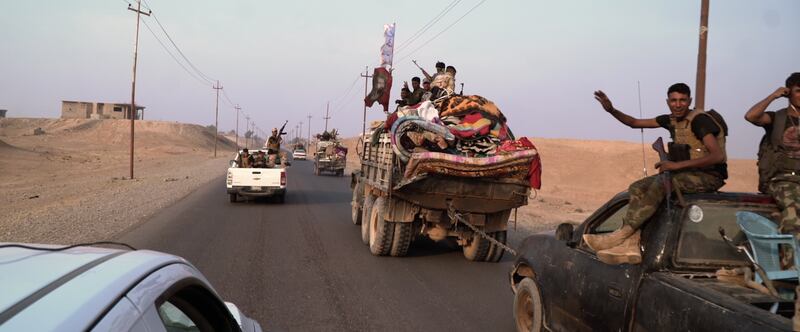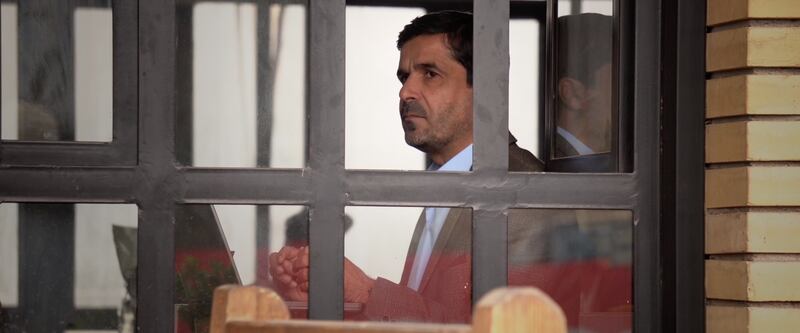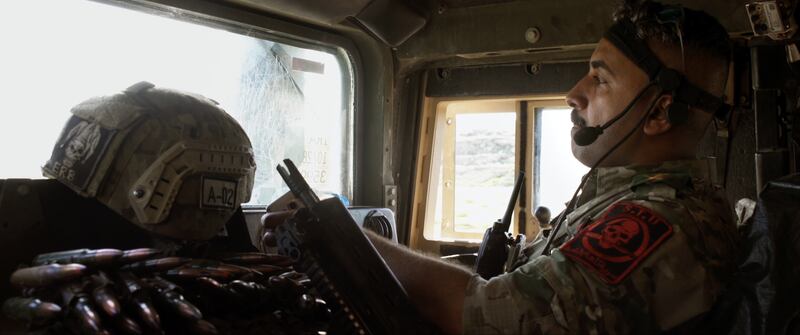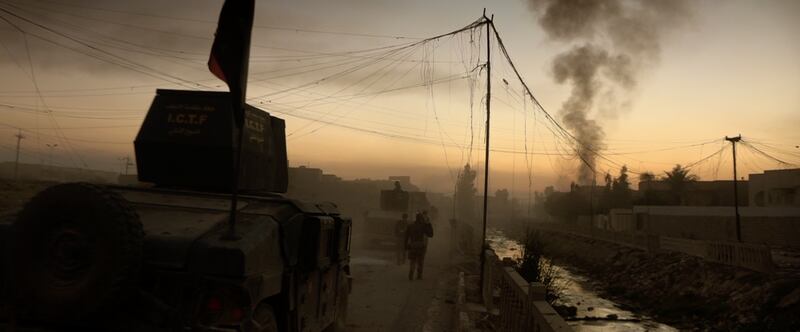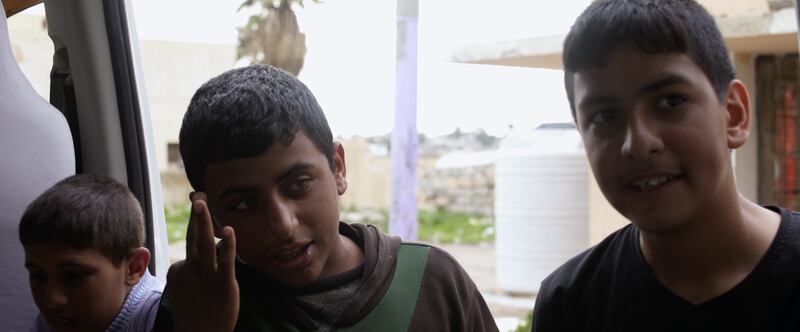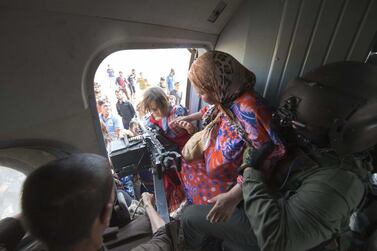Barely two years after the 9/11 bombings in New York, America's Central Intelligence Agency was on a recruiting drive. Having graduated with a master's in international affairs and an undergraduate degree in journalism from George Washington University, Dan Gabriel was a good candidate. He landed a role as staff operations officer in the CIA's Directorate of Operations, covering counter-terrorism and counter-radicalisation.
Gabriel spent the first couple of years at the CIA focused on Iraq and, during that time, he visited Mosul – the country’s second largest city – twice, in 2004 and 2005. He later covered Afghanistan and travelled to Kabul and Jalalabad. During his tenure at the agency, Gabriel completed six trips to the two countries in total, in support of Operation Iraqi Freedom and Operation Enduring Freedom.
"In that role, I was really trying to understand the ideology behind violent extremism and how you counteract it. Whether it's through education, political, social or economic means – the whole spectrum," he tells The National.
After leaving the CIA nearly a decade later, in 2012, Gabriel set up his own company and pursued a career in film. He graduated in filmmaking from New York University's Tisch School of the Arts in 2013 and studied production the following year at University of California's School of Theatre, Film and Television.
Gabriel is now marketing his debut film, Mosul, which was released in May. The film documents the 2016 battle to take back control of the city from the clutches of ISIS. An army of more than 100,000 Iraqi soldiers and militiamen was mobilised to liberate the city of 1.3 million people.
"As a journalism major undergrad, I always had an interest in storytelling," Gabriel says. "As you can imagine, the CIA is a place full of stories – of course, you can't really tell any of them while you're there and even to some extent after you've left – but Mosul was a personal and emotional story to me as it is to many veterans that served in that part of the world."
The documentary follows Iraqi journalist Ali Mula on his journey through Iraq, where he interviews a number of people who are fighting ISIS. Mula meets Sunnis, Shiites, Christians and Kurds – all with sectarian differences, but with one unifying objective – to take back their country from ISIS.
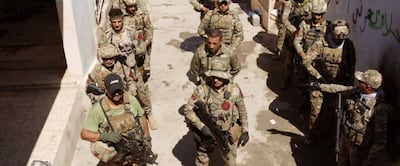
"We constructed the film much like Apocalypse Now or Heart of Darkness, where you're travelling from one city to another and ultimately things get more and more dangerous and more unusual the further along you go," explains Gabriel.
On his journey, Mula meets several colourful characters, including a Sunni tribal leader who calls himself "the Crocodile", a female militia leader avenging the death of her husband, an Iranian-backed militia leader, a lawyer-turned-warrior, a band of ISIS killers, and refugees who survived the brutality of ISIS occupation. Towards the end of his journey, the journalist meets an ISIS prisoner who shines a light on life within the terrorist group.
Gabriel first came across the protagonist to Mosul when he was making a documentary series on ISIS for a public Arabic-language US TV network Alhurra in 2015, called Life After Daesh. In 25 episodes aired over two seasons between 2015 and 2017, former ISIS defectors were interviewed about their reasons for joining the organisation.
Gabriel admired Mula's composed nature and ability to get people to open up, regardless of what side they were fighting for. A particularly striking part of the documentary comes when Mula is interviewing a child in the town of Qayyarah, about 60 kilometres from Mosul. The little one has charred black hands and is surrounded by sheep, which were previously white. His hands and sheep were blackened by ISIS bombing. The militants had poured 38 barrels of sulphur into a nearby well and set it on fire, with the vast plumes of smoke destroying all the crops.
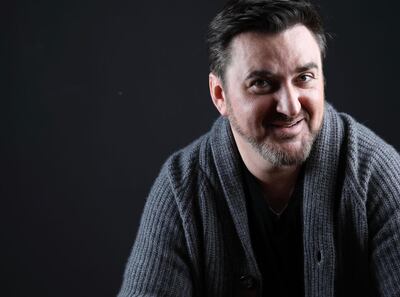
The film highlights a conflict that has been raging for far longer than the battle against ISIS, which indicates the terrorist group is more a symptom in Mosul than the initial problem.
“How did ISIS get in control of Mosul? Because of the power vacuum,” Gabriel says. “Why was there a power vacuum? Because of the sectarian conflict between Sunni and Shiite within the Iraqi society. Without that, there is no ISIS.”
He says such nuances about the cause of the conflict are often not properly covered by the American media.
Why is the film about Mosul rather than another territory under ISIS control? “Mosul to me is a metaphor for the modern Middle East,” Gabriel says. “I think it’s probably the best microcosm that helps you understand the arc [of power] that ISIS had in that region.
“Of course, we could have done it in Ramadi or Fallujah, but those are predominantly Sunni towns. Mosul has it all; it is on the border of Iraq and Syria, it’s Sunni, it’s Shiite, it’s Kurd, it’s Yazidi, it’s got Christians there.
“It’s got everything there that you would possibly want to tell a story. The patch is so colourful and vibrant that it made for a bigger story,” he says.
His background in intelligence and working in the region helped contribute to the authenticity of the film, Gabriel believes.
“The way I’d look at a story is different to how perhaps an average Hollywood director would approach it,” he says.
Gabriel has been overwhelmed with the feedback he received from the military community, as well as from American and Iraqi civilians who have also watched the film, which is still being shown at select screenings across the US. He is now looking to begin work on another film, which will be in a similar format to Mosul, but will look from a higher vantage point: the relationship between Saudi Arabia and Iran.
The film, with a working title of Proxy, aims to interview militias and civilians in the region and examine political differences between Riyadh and Tehran. He wants to travel to Lebanon, Syria and Yemen and interview people.
"We are probably looking to start it in the fall. We are hopefully going to ensure that Mosul is a success – and I think it will be – but we still have a way to go with marketing it," says Gabriel. "In the next month or so, we move into awards season – it would be great to see if we can get a nomination for it for an Oscar under the documentary category."
'Mosul' is available to watch here: mosul-film.com
